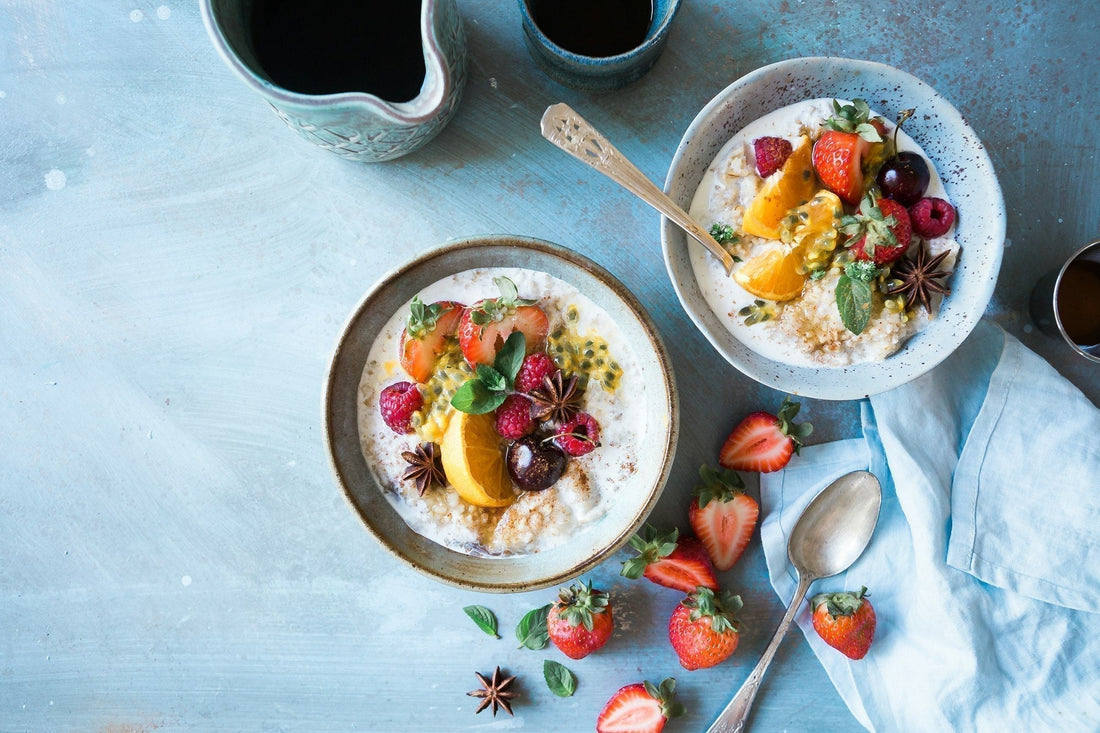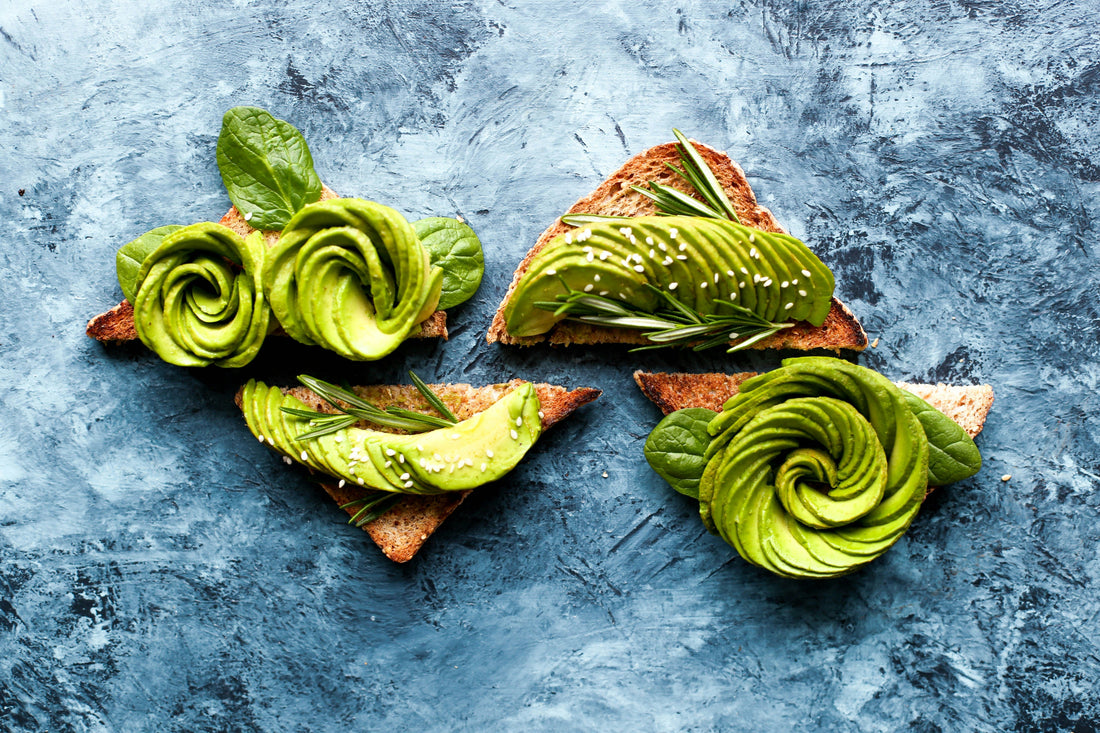TL;DR: Your skin is your largest organ - and it deserves real care. For glowing, healthy skin, focus on three key nutrients: zinc, vitamin C, and collagen. Together, they help your skin heal, stay strong, and bounce back from daily stress. This guide explains what each nutrient does, where to find it, and how Australians can keep their skin healthy under our famously strong sun.
Why skin health matters
In Australia, we live under some of the world’s harshest UV conditions. Between the sunshine, heat, and dry air, our skin works overtime to protect us every single day.
Healthy skin isn’t about perfection. It’s about resilience - how well your skin repairs, hydrates, and protects itself over time.
When your skin is nourished with the right vitamins and minerals, it can better handle everything from a little too much sun to environmental stress.
According to the Skin Health Institute of Australia, good nutrition plays a major role in keeping your skin barrier strong.
So, let’s talk about the nutrients your skin loves.
Zinc: The repair nutrient
If vitamin C is your brightener, zinc is your skin’s fixer.
This powerful mineral helps your skin heal from the inside out - whether that’s a small scratch, a breakout, or the natural wear and tear of daily life.
How zinc helps your skin
- Supports wound healing and tissue repair
- Reduces inflammation and helps calm breakouts
- Protects against UV-related oxidative damage
- Supports the production of collagen and elastin
Zinc also plays a key role in immune health, helping defend your skin from the inside. According to HealthDirect Australia, zinc is one of the most important minerals for maintaining skin integrity and function.
How much zinc do Australians need?
- Adult women: around 8 mg per day
- Adult men: around 11 mg per day
Good food sources
- Oysters, mussels and lean meats
- Pumpkin seeds, chickpeas, lentils, cashews, and wholegrains
If you follow a plant-based diet, you may need to pay extra attention to zinc intake since it’s less easily absorbed from plant foods. Supplements formulated with zinc and copper (to maintain balance) can be helpful if your diet falls short.
Vitamin C: The glow-getter
Bright, even, and firm skin needs one key nutrient - vitamin C. This powerful antioxidant protects your skin from UV and pollution damage while helping it look fresh and hydrated.
Why your skin loves vitamin C
- Boosts collagen production, keeping skin firm
- Reduces oxidative stress caused by sun and pollution
- Helps fade pigmentation and support even tone
- Promotes wound healing and reduces redness
Studies show that consistent vitamin C intake supports smoother, more youthful-looking skin (Oregon State University, 2021).
Australian sources of vitamin C
- Citrus fruits (oranges, mandarins, grapefruit)
- Kiwi fruit, strawberries, and capsicum
- Broccoli and leafy greens
You don’t need mega-doses. In fact, getting vitamin C daily through your diet is easy, or you can choose to supplement.
Collagen: The strength and structure
Collagen gives your skin its structure - think of it as the scaffolding that holds everything together.
Over time, and with Australia’s high UV exposure, our natural collagen production slows down. That’s when you might notice fine lines, dryness, or less elasticity.
What collagen does
- Supports skin firmness and elasticity
- Improves hydration and smoothness
- Helps maintain a youthful, plump look
Evidence suggests collagen peptides may reduce wrinkle depth and improve hydration when paired with nutrients like vitamin C and zinc (Harvard School of Public Health, 2021).
Tips for Australians
- Look for hydrolysed collagen peptides - easier for your body to absorb
- Pair with vitamin C and zinc for best results (they’re cofactors in collagen synthesis)
- Choose TGA-listed Australian-formulated products for safety and quality assurance
Plant-based? You can still support collagen naturally with vitamin C, amino acids, and antioxidants from fruits, legumes, nuts, and seeds.
How these nutrients work together
| Nutrient | What it does | Why it matters for skin |
|---|---|---|
| Zinc | Repairs skin, reduces inflammation | Promotes healing and elasticity |
| Vitamin C | Builds collagen, protects from UV stress | Boosts firmness and glow |
| Collagen | Provides structure, improves hydration | Keeps skin smooth and resilient |
When these three work together, you’ve got a skin-loving trio that helps you glow from the inside out.
Your Aussie skin checklist
If you’re living under our Aussie sun, here’s your daily checklist for healthy, hydrated skin:
- Eat a balanced, colourful diet rich in fruits and vegetables
- Add zinc-rich foods or consider a supplement if you’re plant-based
- Keep hydrated - aim for at least 2 L water daily
- Apply SPF 30+ every single day (even when cloudy)
- Manage stress and get quality sleep - your skin restores itself overnight
And remember: no supplement can replace sunscreen, sleep, or a balanced diet. They’re partners, not shortcuts.
Should you consider supplements?
Even with a great diet, it’s not always easy to hit your nutrient targets every single day — especially if you’re busy, vegan, or have increased skin demands.
That’s where targeted supplements can help.
At Vitable, our personalised vitamin packs make it easy to include exactly what your skin needs — from zinc and vitamin C to collagen peptides — in one daily sachet.
Each formula is Australian-made, TGA-compliant, and delivered right to your door.
FAQs
1. Do I need all three for healthy skin?
Zinc repairs, vitamin C protects, and collagen builds. They work best as a team.
2. Can I get enough from food alone?
Most people can with a balanced diet, and supplementing can help fill the gaps - especially if you’re vegan or live in areas with high UV exposure.
3. How long until I notice results?
Many people notice improvements in hydration and texture within 6–8 weeks of consistent use, though results vary.
4. Is collagen vegan?
Most collagen is derived from animal or marine sources. For a plant-based alternative, focus on vitamin C-rich foods and amino acid sources that support your body’s natural collagen production.







